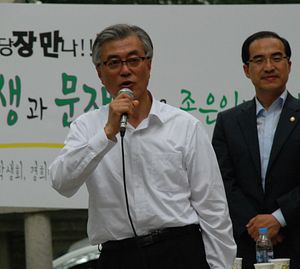The French political scientist Maurice Duverger argued that democracies with single member plurality electoral systems, where candidates receiving the most votes for any given constituency or riding win, tend towards party dualism. The logic, outlined in “Duverger’s law” is simple: third parties don’t last, because they can’t get enough votes to take seats in the legislature. But what happens when countries with plurality voting systems effectively have three parties? The answer is, predictable: someone, or some party, rather, loses.
Traditionally two party systems that now effectively have three (or more) parties include Canada and Great Britain. In Canada, the left is split between the Liberal Party and the New Democratic Party. In Britain, Labour recently saw many of its seats in the House of Commons lost to candidates from the Scottish Nationalist Party. (The Liberal-Democrats, with whom the Conservative Party recently formed a coalition government, further complicates matters; we’ll leave them aside for this article.)
Another country that is systematically inclined toward a two party system is South Korea. (South Korea technically has a mixed plurality/proportional representation system, but most seats in the National Assembly are awarded by plurality vote, not proportion.) Yet, like its democratic counterparts in Canada and Britain, the left is having a hard time keeping its ducks in a row.
The party woes facing New Politics Alliance for Democracy (NPAD), the latest manifestation of a liberal-progressive party in South Korea, are nothing new. A long-time opposition party with a legacy of struggle, it has had an uneasy time as both ruling and opposition party.
Schisms among South Korea’s liberals have a storied history. Splitting the vote between two opposition candidates in 1987 paved the way for Roh Tae-woo’s election, despite his limited popularity. Factional strife between the left’s “three Kims” (Kim Jong-pil, Kim Dae-jung, and Kim Young-sam) further complicated things for liberal party politics in the early 1990s. The intense intra-party strife during Roh Moo-hyun’s presidency (2003-2008), which resulted in a liberal party split during his tenure, eventually led to an (unsuccessful) impeachment of Roh by former supporters. Most recently, Moon Jae-in’s bid for the president as the Democratic United Party’s choice was temporarily derailed (and certainly damaged) when Ahn Cheol-soo suddenly announced his intention to run as the liberal party candidate after Moon had been selected as the party’s candidate.
There is, however, a new development worth tracking. Rumblings within Honam, the region historically represented by one of the liberal-progressive parties, suggest that the liberal’s traditional base of support is perhaps waning. Trouble showed itself in the latest elections, when NAPD lost its seat in Gwangju, the urban center of Honam, to former NPAD member Chun Jung-bae. Since then, matters have worsened. Chun, who won as an independent, has signaled his intent to form a new party, indicating this party would represent the interest of the Honam electorate.
On Wednesday, the former governor of South Jeolla province, Park Jun-young, and an assemblyman, Park Ju-seon (a liberal party defector), appeared on Gwangju local television to debate the notion of starting a new (Honam) party. Absent from the debate was Chun, who cited a “busy schedule in Seoul” as the reason for his absence.
The formation of a regional Honam party would mean certain electoral defeat for NPAD, much in the same way the regional SNP hurt British Labour. This is what happens in plurality voting systems – and why the primary issue for the British Liberal-Democrat Party (a perennial third party) is electoral reform.
A slightly more optimistic read on the situation might be that regionalism in South Korean politics is slowly fading away and that the electorate in Honam aren’t simply going to vote for liberal-progressive candidates because that’s what they’ve historically done. They want results. But such interpretations, while arguably correct in identifying a voting trend (toward electoral pragmatism), only show that more liberal-progressive party woes are in store in the near future.

































